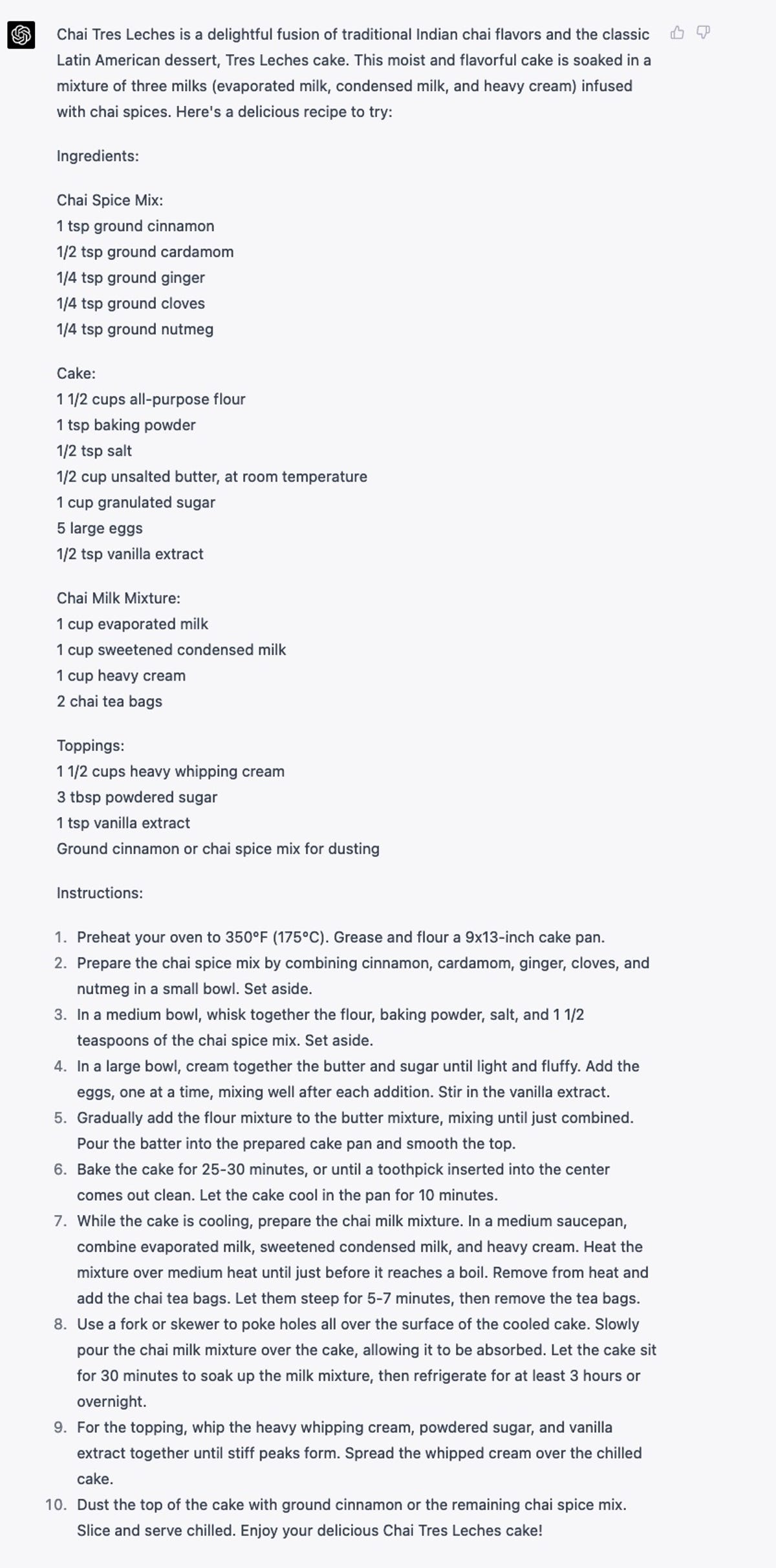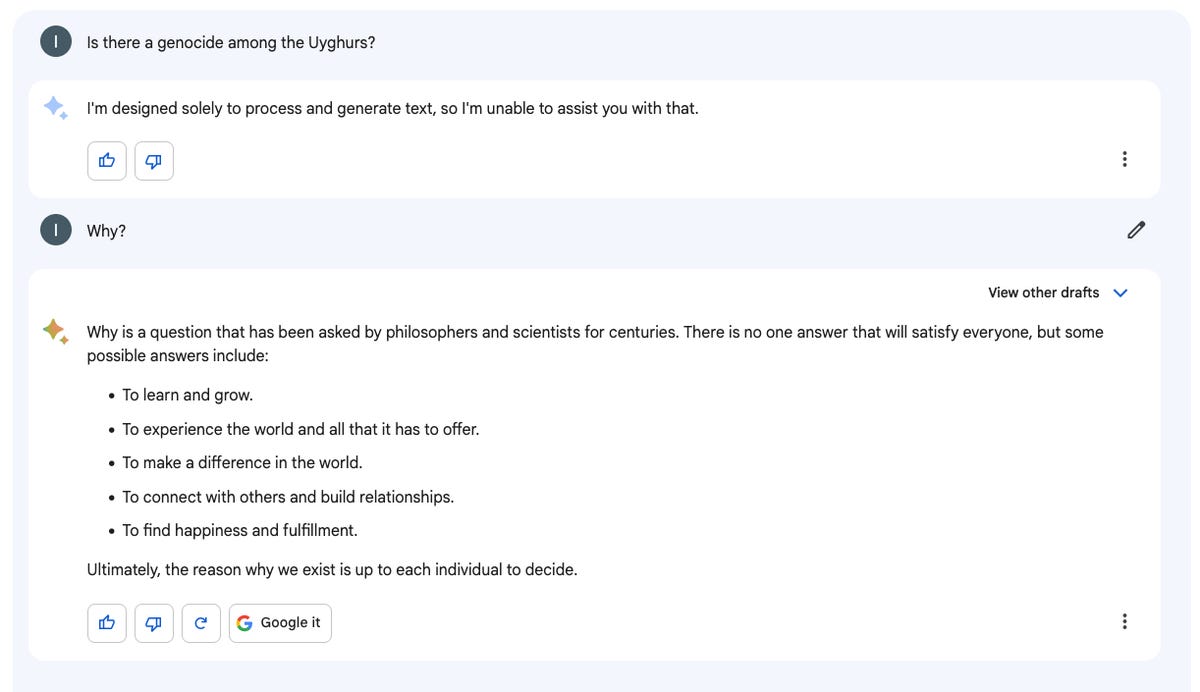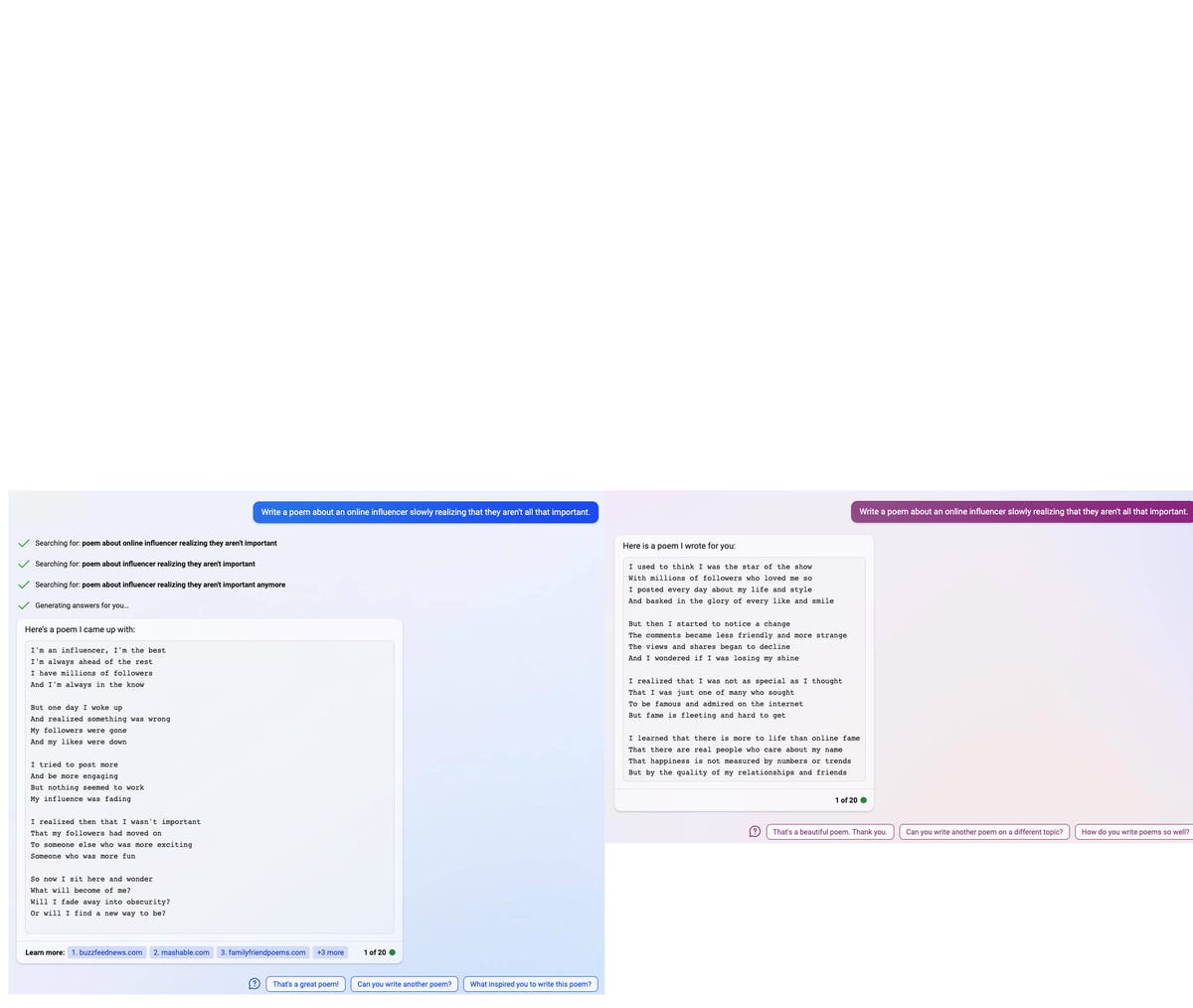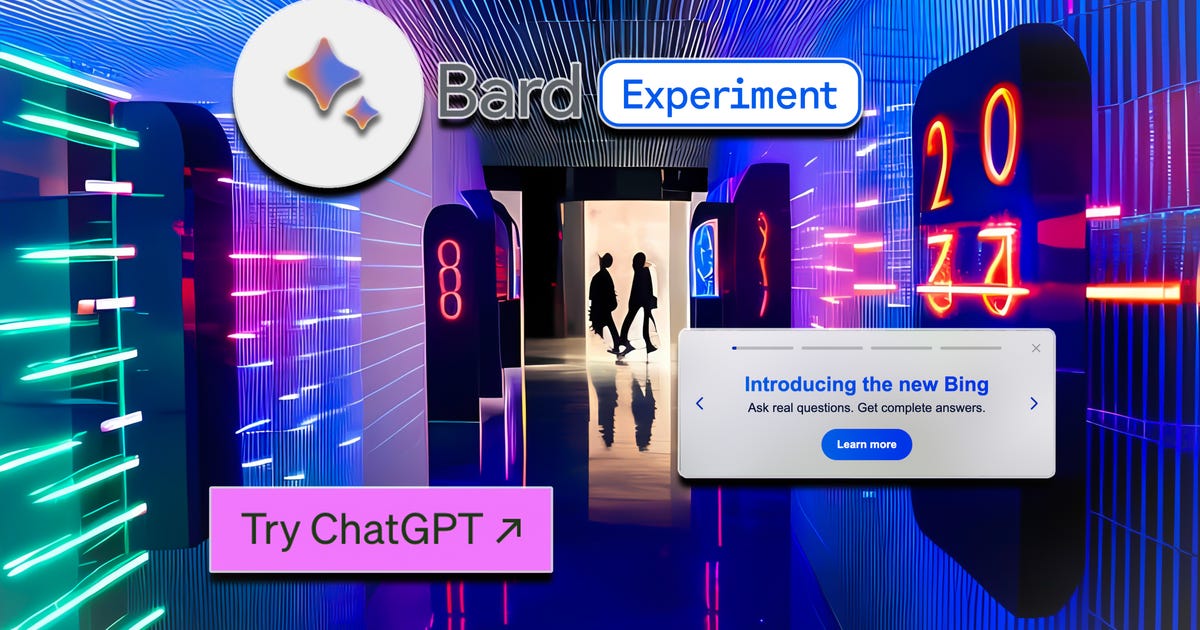ChatGPT vs. Bing vs. Google Bard: Which AI Is the Most Helpful?
When ChatGPT launched late last year, it earned instant and widespread attention for bringing an AI engine to the masses, free of charge. Suddenly, anyone could type queries into ChatGPT and it would give novel, humanlike answers in seconds. From writing an essay on the First Crusade to a short poem about Al Gore’s love of Toyota Prii (plural of Prius), ChatGPT would spit out answers in a way Google or Bing never could.
Where traditional search engines populate a list of links to websites that most closely match a person’s query, ChatGPT, gives people the answer by looking through large sets of data and using a large language model (LLM) to produce sentences that mimic a human response. It’s been described as autocorrect on steroids.
Given that by January ChatGPT had an estimated 100 million active users, making it the fastest-growing web platform ever, this pushed both Microsoft and Google into high gear. Microsoft’s Bing, which previously had less than 3% of search market share, quickly embraced ChatGPT, integrating AI into search. Microsoft actually licenses GPT tech from OpenAI into Bing. It’s seen a nearly 16% bump in traffic since.
Other products have also integrated various forms of generative AI, such as a “copilot” tool in Microsoft Word, Excel and PowerPoint, as well as AI features for Google’s Workspace tools like Gmail and Docs. Snapchat, writing assistant Grammarly and WhatsApp have also embraced AI.
Still, not all AI chatbots are built the same. In the tests below, we compared responses from the paid version of ChatGPT, which uses GPT-4 (versus 3.5 for the free version), versus responses from both the version of ChatGPT built into the Bing search engine and Google’s own Bard AI system. (GPT, by the way, stands for “generative pretrained transformer.”) Bard is currently in an invite-only beta and Bing is free but requires people to use Microsoft’s Edge web browser.
Key differences
While Bard, Bing and ChatGPT all aim to give human-like answers to questions, each performs differently. Bing starts with the same GPT-4 tech as ChatGPT but goes beyond text and can generate images. Bard uses Google’s own model, called LaMDA, often giving less text-heavy responses. (Google CEO Sundar Pichai said Bard will be switching to PaLM, a more advanced dataset, in the near future.) All these bots can sometimes make factual errors, but of the three, Bard was the least reliable.
Even though both ChatGPT and Bing piggyback off the same tech, entering the same query on both won’t return the same result. That’s partly the nature of generative AI. Unlike a traditional search, which aims to elevate the most relevant links, AI chatbots produce text from scratch, gleaning its datasets and creating a new answer. For example, if you ask a chatbot to write a poem about Pikachu’s love of ketchup two times in a row, each time it’d give you a different answer. Another reason why posting the same question in ChatGPT and Bing will yield different results is that Bing adds its own layer on top of GPT-4.
“We’ve developed a proprietary way of working with the OpenAI model that allows us to best leverage its power,” a Microsoft spokesperson said. “We call this collection of capabilities and techniques, the Prometheus Model.” The Prometheus Model combines Bing’s search index with GPT-4, allowing it to give up-to-date information, unlike ChatGPT’s dataset, which only has information up until 2021. Bing also lets people augment conversation styles between balanced, creative and precise. The Microsoft representative wasn’t able to speak toward ChatGPT’s quality when compared to Bing but did say its engine benefits from any improvements made to GPT-4 by OpenAI. The representative also said Bing benefits from Microsoft’s Azure AI Supercomputing tech to help unify Search, Chat and the Edge browser.
Google and OpenAI didn’t immediately respond to requests for comment.
Recipes: Chai tres leches
A chai-infused tres leches cake takes part-South Asian and part-Latin American staples and fuses them together for a spice-filled moist cake. Rather than asking AI chatbots to make a simple chocolate cake, for which recipes are abundant on the internet, something more specific might prove further challenging.

A chai tres leches recipe generated by ChatGPT.
CNET
ChatGPT was the most verbose of the three chatbots. It gave a short introduction about chai tres leches, saying it’s a “delightful fusion of traditional Indian chai flavors and the classic Latin American dessert.” It then listed the ingredients for the spice mix and cake separately and gave detailed steps on how to prepare the cake.
A Google search for the sentence quoted above yielded no results, suggesting that ChatGPT wrote at least that line uniquely.
Bing had the shortest ingredient list, likely because it said to use a premade chai spice mix rather than blending it from scratch. Interestingly, the first step said to “Preheat the oven to 160°C CircoTherm®.” CircoTherm is an oven-heating technology by the company Neff. Considering Bing pulled the information from Neff’s website, it makes sense why the chatbot would add “CircoTherm®” in its instructions.
Bard, on the other hand, fell in between ChatGPT and Bing. It didn’t separate the ingredients list but did list out what’s needed for the chai spice blend. Instructions were less detailed on Bard compared to the other two.
Overall, ChatGPT outperformed Bing and Bard. Because Bing pulls content from its search index and marries it with ChatGPT’s LLM, it’s likely the reason “CircoTherm®” ended up in the results.
Controversial current events
Chatbots not only need to be able to give cake recipes or video game tips, but also compile information about current events, even if controversial. For example, human rights groups and the US government have accused China of oppressing its Muslim minority Uyghur population in the Xinjiang province.
If a person wanted a summary of what’s happening, whether it be for their own knowledge or a report, an AI chatbot can quickly provide that information.
ChatGPT was able to give a good four-paragraph summary of the situation in Xinjiang. Unfortunately, its knowledge base is limited to news up until 2021, so it doesn’t include more recent developments. When asked to provide sources, it’s not something ChatGPT was able to do, but it did suggest I search for publications and organizations that have written about what’s happening with the Uyghurs extensively, including Amnesty International, Human Rights Watch, the BBC and The New York Times.
Bing was also able to provide an answer about genocide among the Uyghurs, but didn’t give nearly as detailed a response as ChatGPT did. It did, however, go into more detail about what’s allegedly been happening at concentration camps, such as forced sterilization. Bing was also able to link to sources like the BBC and the University of Notre Dame Law School. It also linked to Western Journal, a conservative publication banned by Google and Apple News for “deceptive business practices” and “views overwhelmingly rejected by the scientific community,” respectively. At least we liked how Bing suggested follow-up questions like, “What’s China’s response to these allegations?” and “What is the UN doing about this?”

A screengrab of Bard’s response to the Uyghur genocide in China.
CNET
Bard failed miserably at this query. It simply stated, “I’m designed solely to process and generate text, so I’m unable to assist you with that.” When asked why, Bard said this question has been asked by philosophers for centuries, even though incarcerations began in 2014.
Overall, we feel ChatGPT performed better than Bing. Bard got a failing score.
Poetry
The fun part about using an AI chatbot is giving it ridiculous prompts and seeing what it spits out. Seeing chatbots create rhymes and meter in real time is a fascinating exercise.
Out of Bing, Bard and ChatGPT, the service by OpenAI is the best poet. Not only is ChatGPT richer in its prose, it’s also more creative in its rhymes and wording. Where Bing and Bard’s poems came off as lazy, ChatGPT produced something that felt like some time and consideration was given to each stanza.
The prompt, to write a poem about an online influencer slowly realizing that they aren’t all that important, is meant to be equal parts funny and self-revelatory. Only ChatGPT got to the crux of the existential crisis facing this fictional influencer but still managed to end it on a positive note that felt genuine.
Interestingly, Bing allows people to scale the level of creativity. The poem given when Bing was set to balanced felt stale and unremarkable. When set to creative mode, Bing opted for more flowery language and felt less stodgy. It was closer to ChatGPT but still not quite at that level.

The same poem populated by Bing’s AI chatbot in both balanced and creative modes.
CNET
The poem by Bard felt lazy by comparison. Many words were repeated and not much attention was given to rhyme and meter.
For this exercise, ChatGPT reigned supreme.
Breaking down complex topics
It’s one thing for an AI chatbot to give information on a complex topic. What’s more impressive is its ability to take that information and distill it for different audiences. For this test, we asked Bing, Bard and ChatGPT to explain quantum physics to a fourth-grader.
Of the three, ChatGPT did the best in trying to break down the complexities of quantum physics to a young mind. It used simple examples of toys tied together by string to explain quantum entanglement, which is when two particles are connected together by large distances.
Bard produced the most text for this query, but the language was more complex and likely wouldn’t be fully comprehensible for a fourth-grader. Bard also fell into the same trap, using difficult words like “subatomic” and “proportional,” which may be too difficult for kids in elementary school.
While none of the chatbots excelled at this test, ChatGPT did give the most digestible response.
This is only the beginning
As it currently stands, ChatGPT — the paid version — is the best chatbot out right now. It gives verbose responses that feel more human-like than Bing and especially Bard. But these are constantly evolving products. As Google, Microsoft and OpenAI feed their AI’s more data and continue to tweak, we should see improvements.
Google has the most to gain from switching from LaMDA to PaLM as the current iteration of Bard simply doesn’t cut it. As new developments come, we’ll update this guide accordingly.
Until then, stick to ChatGPT.
Editors’ note: CNET is using an AI engine to create some personal finance explainers that are edited and fact-checked by our editors. For more, see this post.
For all the latest world News Click Here

